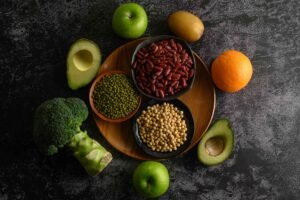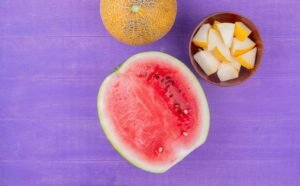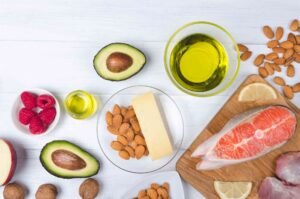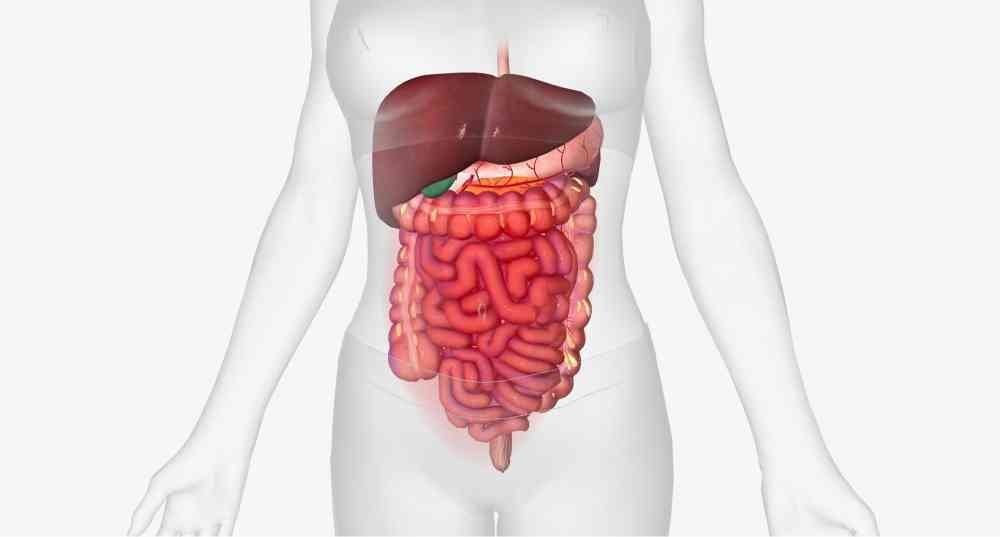Your digestive system is the unsung hero of your body, working tirelessly to process the food you eat, absorb essential nutrients, and eliminate waste. But how often do we think about taking care of it? A healthy digestive system is crucial for overall well-being, as it directly impacts your immunity, energy levels, and even mental health. Thankfully, maintaining your gut health doesn’t require drastic measures—sometimes, it’s as simple as choosing the right foods.
In this blog, we’ll dive into foods that nourish and support a healthy digestive system, while also addressing how your diet can help prevent common digestive issues. Let’s get started!
Why Is a Healthy Digestive System Important?
Your digestive system doesn’t just break down food—it’s responsible for nutrient absorption, supporting immune functions, and maintaining a balance of good bacteria in your gut. When it’s functioning optimally, you feel energetic and your body thrives. However, when digestion is compromised, you may experience symptoms like bloating, gas, heartburn, or constipation. Chronic digestive issues can even lead to long-term conditions such as irritable bowel syndrome (IBS), acid reflux, or ulcers.
The good news? Your diet plays a huge role in keeping your digestive system healthy. Incorporating specific foods can promote better digestion, reduce inflammation, and encourage the growth of beneficial gut bacteria.
Foods to Support a Healthy Digestive System
Let’s take a closer look at foods that can help you maintain a healthy digestive system. These choices are not only nutritious but also easy to incorporate into your daily meals.
1. Fiber-Rich Foods
Fiber is your digestive system’s best friend. It adds bulk to your stool, promotes regular bowel movements, and prevents constipation. There are two types of fiber—soluble and insoluble—and both are essential for a healthy gut.
- Soluble Fiber: Found in oats, apples, and carrots, it dissolves in water and forms a gel-like substance, which slows digestion and stabilizes blood sugar levels.
- Insoluble Fiber: Found in whole grains, nuts, and vegetables, it doesn’t dissolve but adds bulk to stool, helping food move smoothly through your digestive tract.
Incorporating fiber-rich foods like beans, lentils, whole grains, and leafy greens can do wonders for your gut health.

2. Probiotic Foods
Probiotics are live bacteria that boost the population of beneficial microbes in your gut. A healthy digestive system relies on a balanced microbiome, and probiotics can help maintain that balance.
- Yogurt: Look for yogurt with live and active cultures.
- Kefir: A fermented milk drink that’s a powerful source of probiotics.
- Sauerkraut and Kimchi: Fermented vegetables that are not only tasty but also great for gut health.
- Miso and Tempeh: Fermented soy products that add variety to your probiotic intake.
These foods introduce good bacteria into your digestive system, improving gut flora and aiding digestion.
3. Prebiotic Foods
While probiotics are live bacteria, prebiotics are the food that feeds those bacteria. Including prebiotics in your diet helps probiotics thrive, fostering a healthy digestive system.
- Bananas: A convenient snack and a rich source of prebiotics.
- Garlic and Onions: Flavorful staples that feed good bacteria.
- Asparagus and Leeks: Excellent prebiotic vegetables.
- Chicory Root: Often found in herbal teas or coffee substitutes.
Pairing prebiotic and probiotic foods ensures your gut bacteria remain balanced and healthy.
4. Hydrating Foods
Proper hydration is essential for digestion, as it keeps stool soft and helps it move through your digestive system. While drinking water is the best way to stay hydrated, certain foods can also contribute to your hydration needs.
- Cucumbers: High in water content and soothing for the digestive tract.
- Watermelon: A hydrating fruit packed with vitamins and antioxidants.
- Soups and Broths: Nourishing and gentle on your stomach.
Make sure you’re drinking plenty of water daily alongside these hydrating foods.

5. Ginger and Turmeric
Known for their anti-inflammatory and soothing properties, ginger and turmeric are must-haves for anyone aiming for a healthy digestive system.
- Ginger: Helps with nausea, bloating, and indigestion. Try ginger tea or add grated ginger to your dishes.
- Turmeric: Contains curcumin, which reduces gut inflammation and promotes healing. Use it in curries, soups, or even golden milk.
These spices not only enhance flavor but also provide significant digestive benefits.
6. Low-Fat Foods
High-fat foods can slow digestion and lead to discomfort, especially in individuals prone to acid reflux or bloating. Opt for healthier fat sources and low-fat alternatives.
- Lean Proteins: Skinless poultry, fish, and tofu are easier to digest.
- Healthy Fats: Avocados, olive oil, and nuts in moderation support gut health without overwhelming your digestive system.
Balancing fat intake is key to maintaining a smooth digestive process.

7. Herbal Teas
Certain teas can calm your digestive system and alleviate discomfort after meals. Herbal teas are caffeine-free, making them a soothing option for your gut.
- Peppermint Tea: Relieves bloating and indigestion.
- Chamomile Tea: Reduces inflammation and eases an upset stomach.
- Fennel Tea: Helps with gas and cramps.
Enjoying a warm cup of herbal tea after meals can be both relaxing and gut-friendly.
Tips for Maintaining a Healthy Digestive System
While incorporating the right foods is essential, there are other lifestyle changes that can support a healthy digestive system:
- Eat Mindfully: Chew your food thoroughly and avoid eating in a rush.
- Stay Active: Regular exercise promotes better digestion and prevents constipation.
- Manage Stress: Chronic stress can negatively impact your gut health. Practice relaxation techniques like meditation or yoga.
- Avoid Overeating: Large meals can overwhelm your digestive system, leading to discomfort. Opt for smaller, frequent meals instead.
- Limit Processed Foods: These often lack nutrients and can disrupt your gut microbiome.
Common Digestive Problems and How Food Can Help
Certain digestive issues are prevalent, and your diet can play a significant role in managing or preventing them.
- Acid Reflux: Avoid trigger foods like spicy or fried items and incorporate alkaline foods like bananas and oats.
- Constipation: Boost your fiber intake with whole grains, fruits, and vegetables while staying hydrated.
- Diarrhea: Stick to bland foods like rice and bananas, and consume probiotics to restore gut flora.
- IBS: Identify trigger foods and focus on low-FODMAP options like zucchini, carrots, and lean proteins.

Conclusion
A healthy digestive system is the foundation of overall well-being. By including fiber-rich foods, probiotics, prebiotics, and hydrating options, you can nourish your gut and support optimal digestion. Simple changes, like incorporating ginger and limiting high-fat meals, can make a big difference in how your digestive system functions.
Remember, your body thrives when your gut is happy. Start small, be consistent, and enjoy the benefits of better digestion and improved health. After all, taking care of your digestive system means taking care of yourself!


